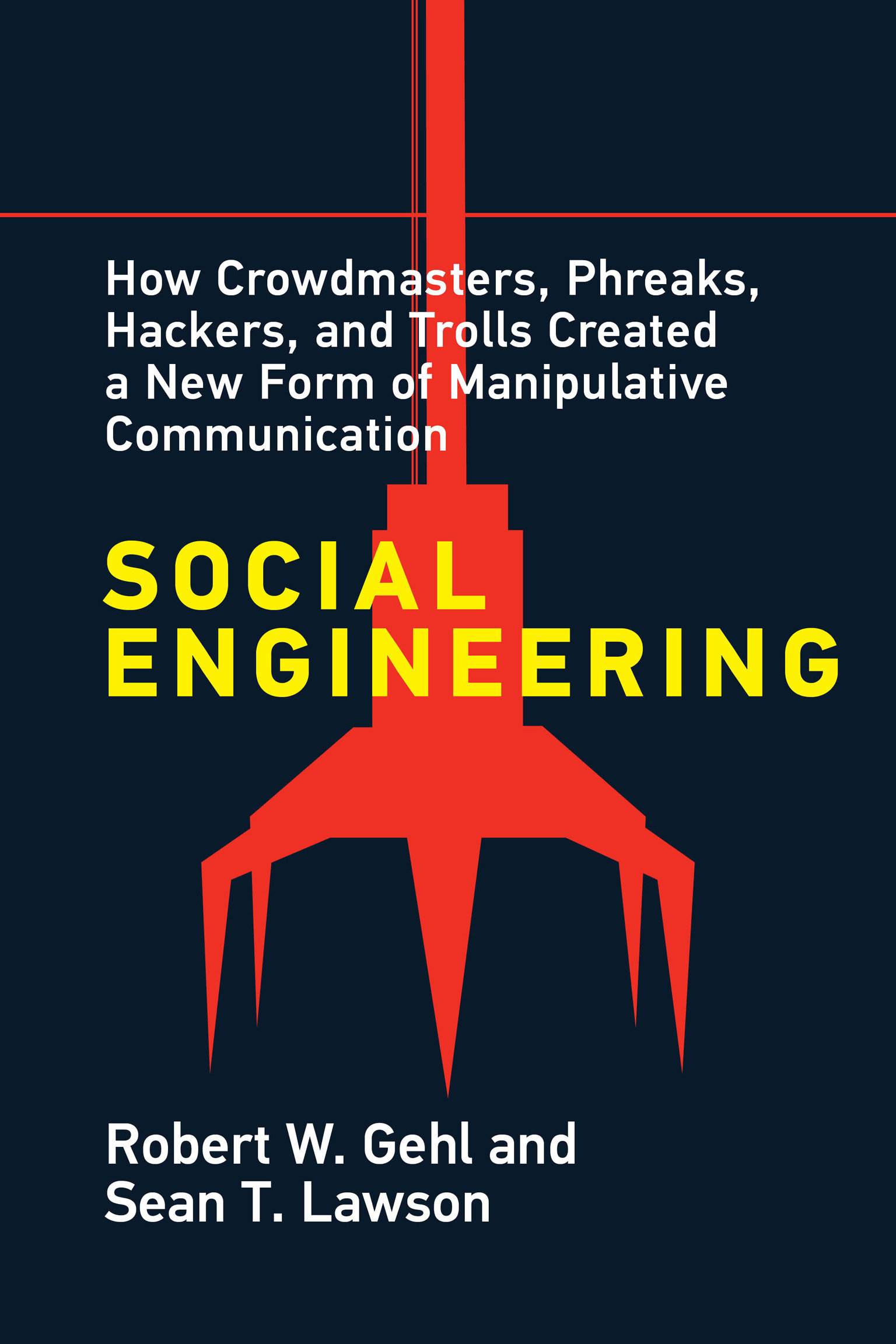Social Engineering: How Crowdmasters, Phreaks, Hackers, and Trolls Created a New Form of Manipulativ e Communication
22.00 JOD
Please allow 2 – 5 weeks for delivery of this item
Description
Manipulative communication—from early twentieth-century propaganda to today’s online con artistry—examined through the lens of social engineering. The United States is awash in manipulated information about everything from election results to the effectiveness of medical treatments. Corporate social media is an especially good channel for manipulative communication, with Facebook a particularly willing vehicle for it. In Social Engineering, Robert Gehl and Sean Lawson show that online misinformation has its roots in earlier techniques: mass social engineering of the early twentieth century and interpersonal hacker social engineering of the 1970s, converging today into what they call “masspersonal social engineering.” As Gehl and Lawson trace contemporary manipulative communication back to earlier forms of social engineering, possibilities for amelioration become clearer. The authors show how specific manipulative communication practices are a mixture of information gathering, deception, and truth-indifferent statements, all with the instrumental goal of getting people to take actions the social engineer wants them to. Yet the term “fake news,” they claim, reduces everything to a true/false binary that fails to encompass the complexity of manipulative communication or to map onto many of its practices. They pay special attention to concepts and terms used by hacker social engineers, including the hacker concept of “bullshitting,” which the authors describe as a truth-indifferent mix of deception, accuracy, and sociability. They conclude with recommendations for how society can undermine masspersonal social engineering and move toward healthier democratic deliberation.
Additional information
| Weight | 0.4015176 kg |
|---|---|
| Dimensions | 2.3622 × 15.2908 × 22.86 cm |
| by | |
| Format | Paperback |
| Language | |
| Pages | 344 |
| Publisher | |
| Year Published | 2022-3-8 |
| Imprint | |
| Publication City/Country | USA |
| ISBN 10 | 0262543451 |
| About The Author | Robert W. Gehl is F. Jay Taylor Endowed Research Chair of Communication at Louisiana Tech University and the author of Weaving the Dark Web (MIT Press). Sean T. Lawson is Associate Professor of Communication at the University of Utah, Non-Resident Fellow at the Brute Krulak Center for Innovation & Future Warfare at the Marine Corps University, and author of Cybersecurity Discourse in the United States. |
| Other text | “Gehl and Lawson’s approach to propaganda and deception is truly original. By revisiting and intertwining the histories of hacking and mass deception, they inject much-needed nuance into contemporary debates and analysis on the political source, nature, and impacts of contemporary manipulation.”—Gabriella Coleman, author of Hacker, Hoaxer, Whistleblower, Spy: The Many Faces of Anonymous “A thoughtful discussion of modern manipulation techniques, weaving threads from mass propaganda, social media campaigns, and hackers’ social engineering.”—Bruce Schneier, author of Data and Goliath and Click Here to Kill Everybody |
| Table Of Content | Acknowledgments ixIntroduction: The Emergence of Masspersonal Social Engineering 1I Engineering the Social 251 Crowdmasters: The Rise and Fall of Mass Social Engineering, 1920-1976 272 Phreaks and Hackers: The Rise of Interpersonal Social Engineering, 1976-Present 49II The Social Engineering Process 673 Trashing: From Dumpster Diving to Data Dumps 694 Pretexting: Recognizing the Mitnick Mythology 895 Bullshitting: Deception, Friendliness, and Accuracy 1156 Penetrating: The Desire to Control Media and Minds 139III Masspersonal Social Engineering 1637 Contemporary Masspersonal Social Engineering 1658 Conclusion: Ameliorating Masspersonal Social Engineering 199Notes 227Bibliography 279Index 319 |
Only logged in customers who have purchased this product may leave a review.





Reviews
There are no reviews yet.